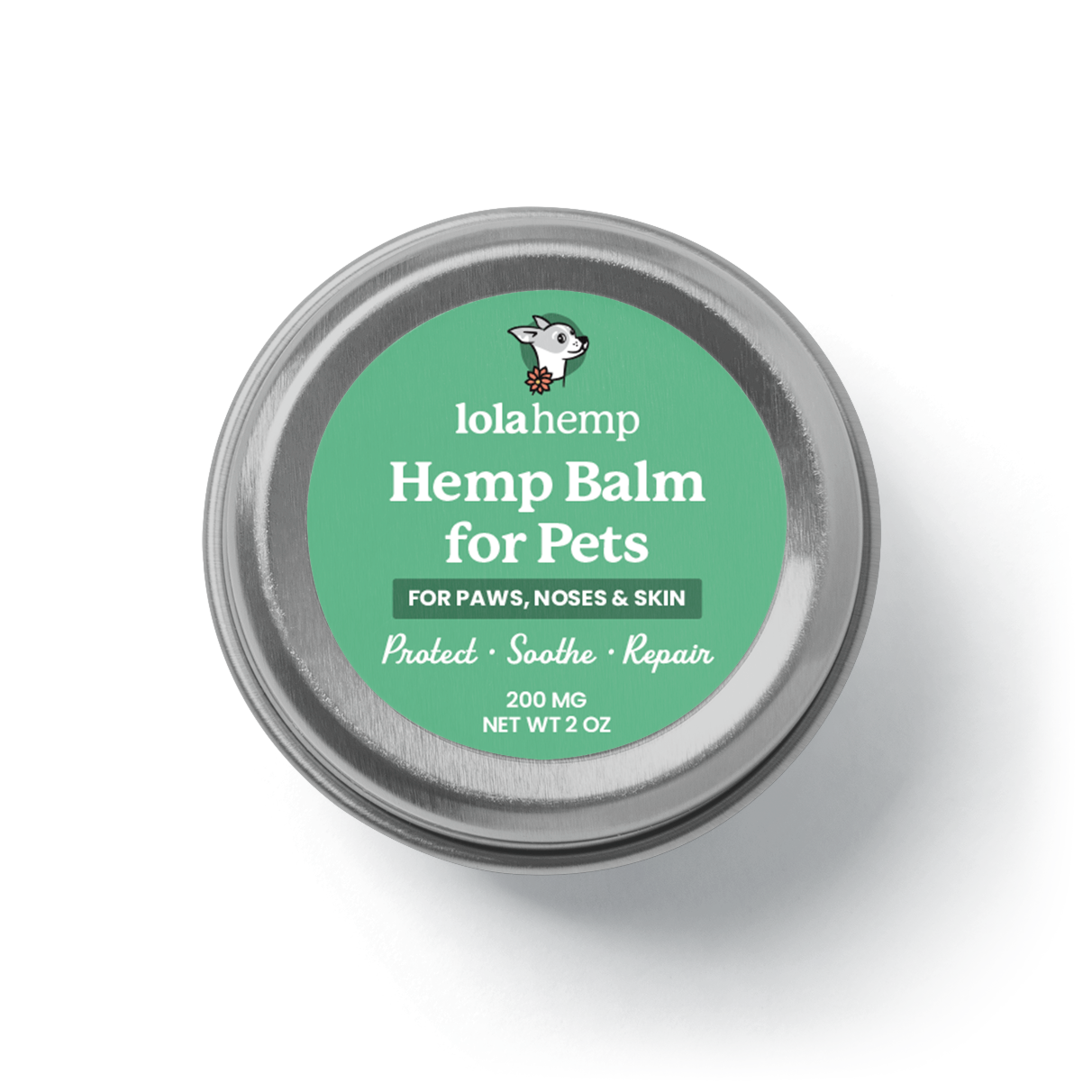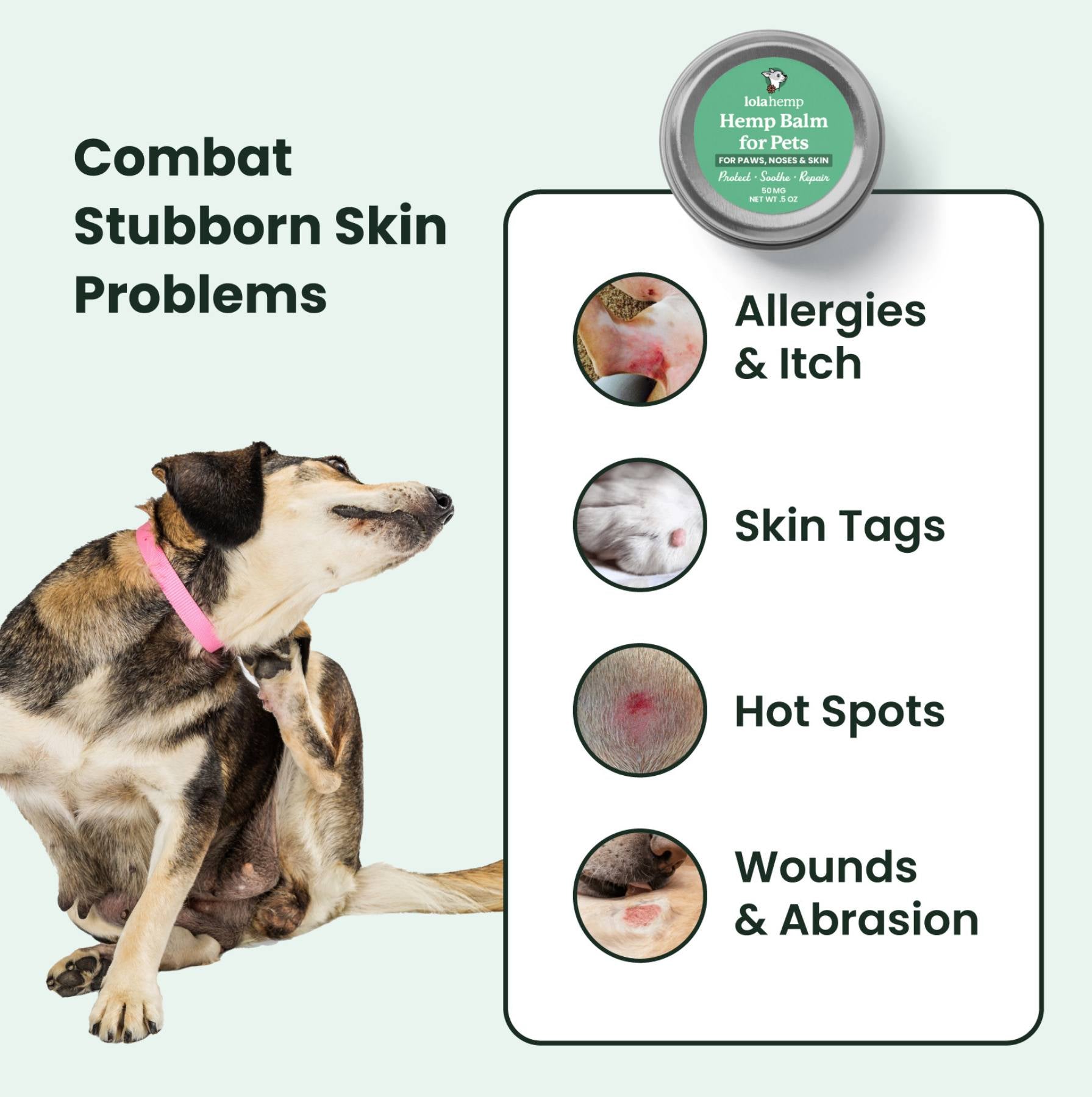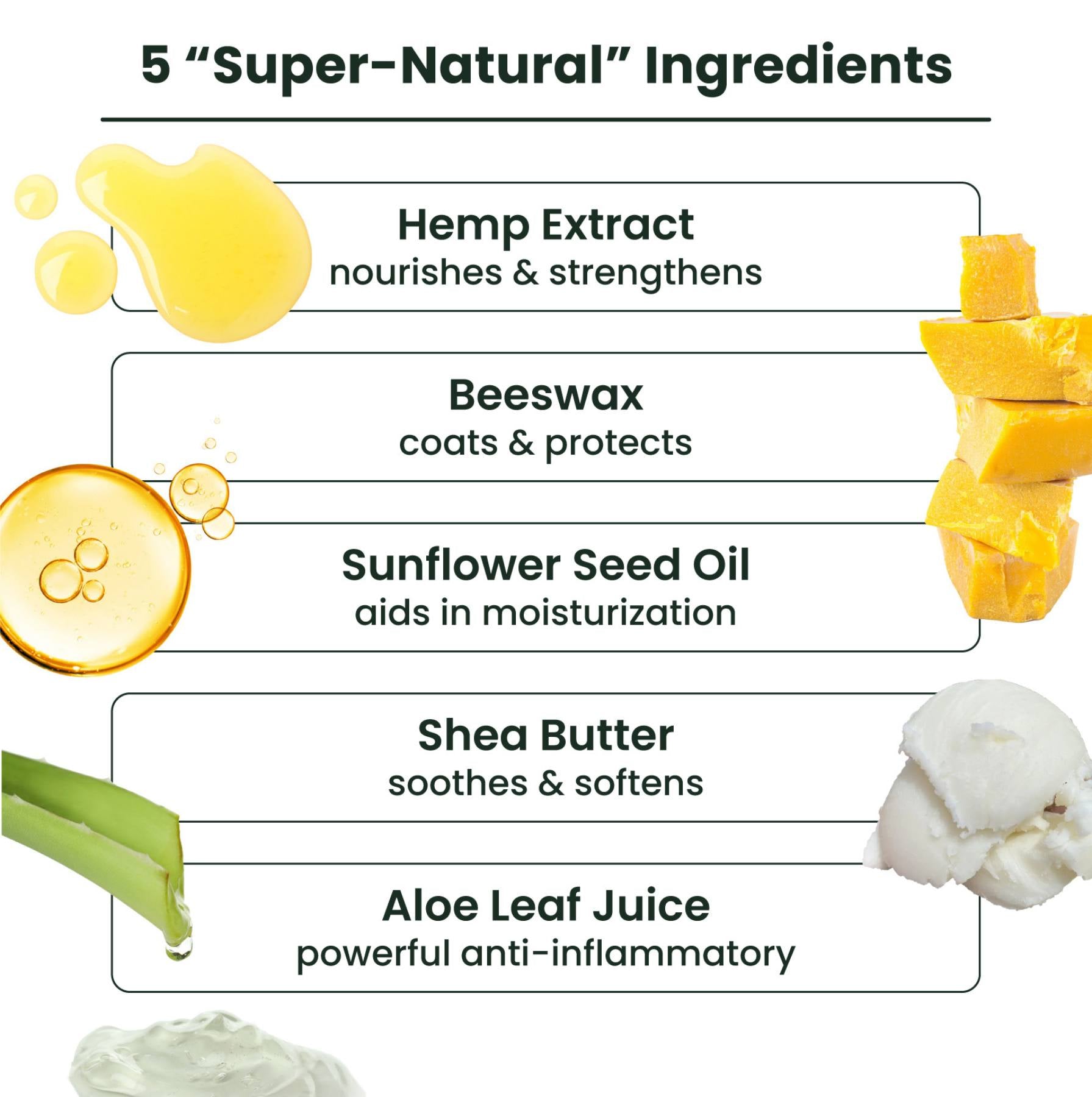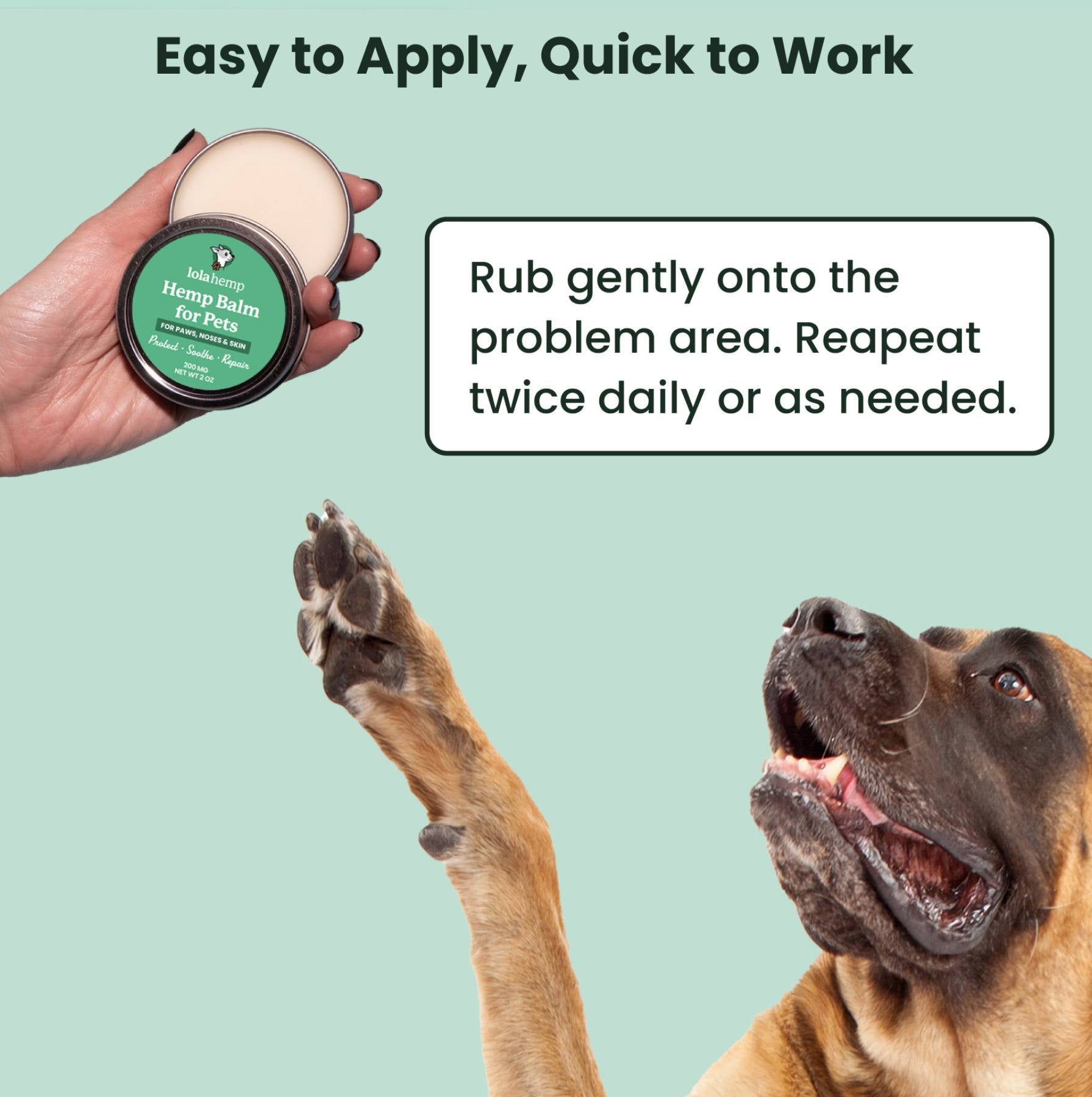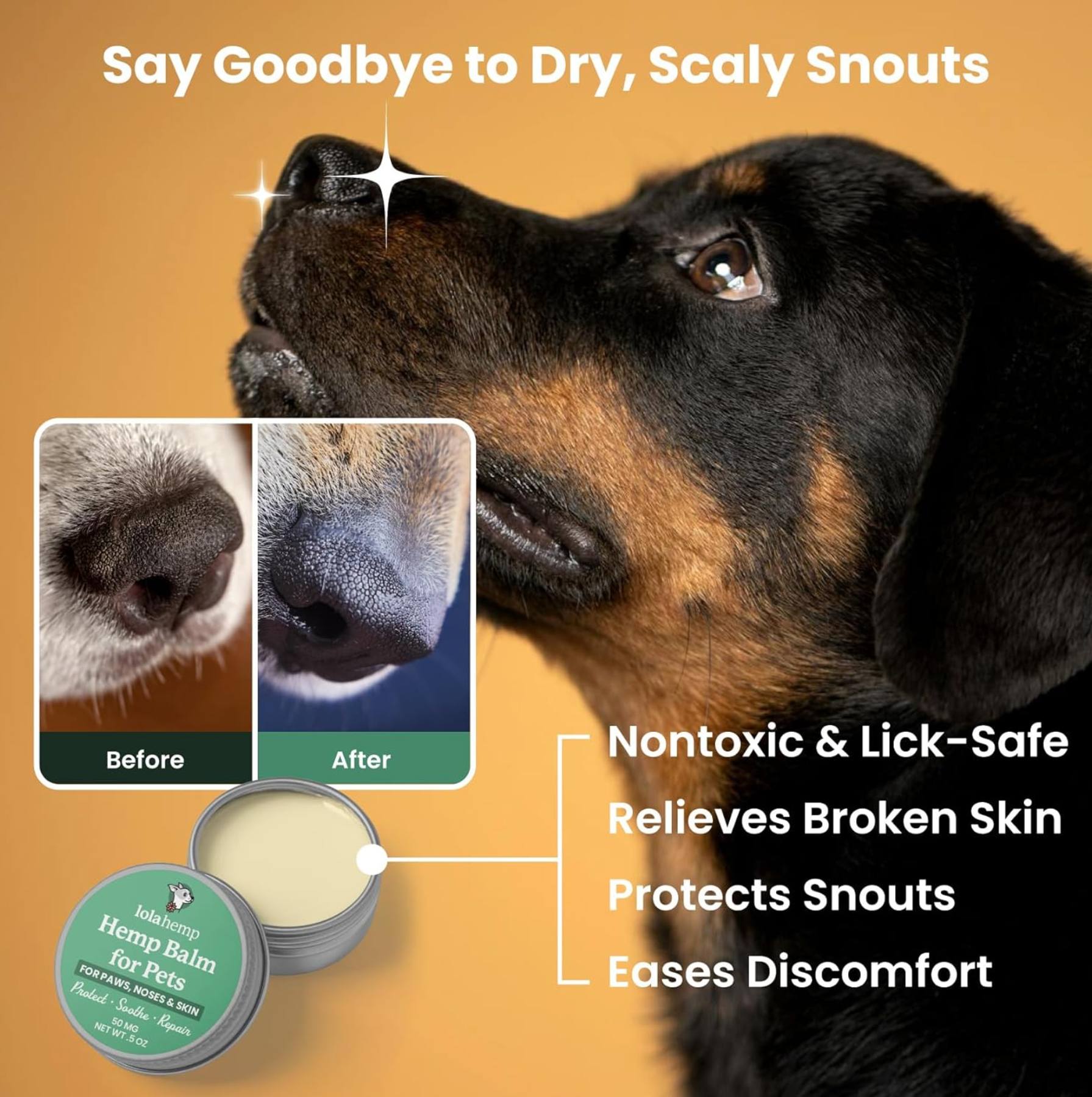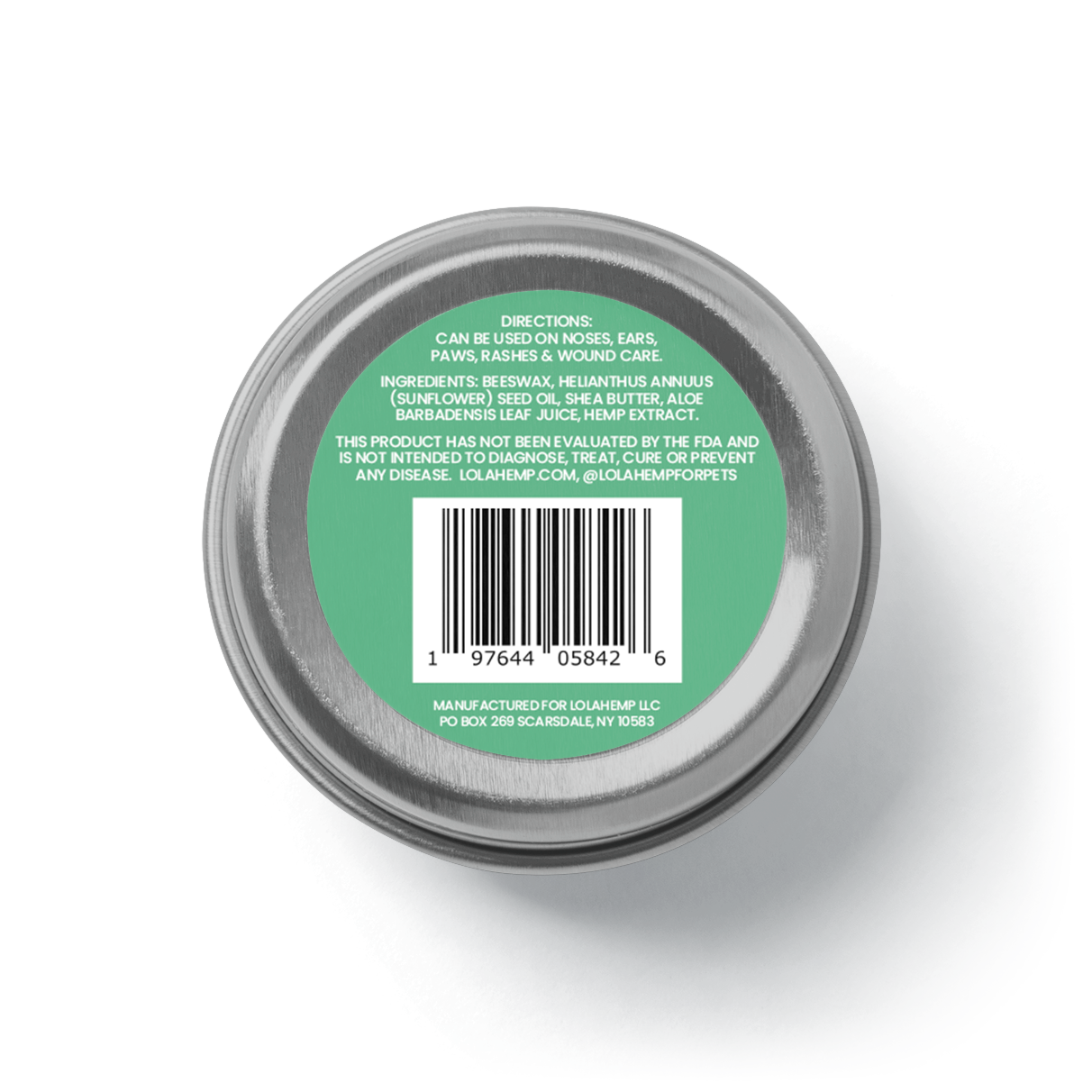Dog hair oils differ from ingestible oils such as CBD oil for dogs that are intended to produce other health benefits. This article strictly discusses the topical use of oils for dogs.
Caring for your dog’s coat can be challenging, especially when you’re looking for ways to keep it healthy and vibrant. Different kinds of oil applied topically, such as coconut oil, have become a popular solution among pet owners for addressing common coat issues like itchy or dry skin, dullness, and shedding.
In this article, we’ll explore what a topical oil for dogs is, how it benefits your pet’s fur and skin, and practical advice on how to use it effectively. Our goal is to help you make informed decisions about incorporating hair oil into your grooming routine, ensuring your dog’s coat stays in top condition.

- Dog Hair Oil Options for Pet Owners
- What's The Best Oil for Your Dog's Skin? - Fish Oil
- What's the Best Oil for Your Dog's Fur? - Unrefined Coconut Oil
- Frequently Asked Questions About Oil for Dogs' Skin and Coat
- What are the benefits of using oil on a dog’s coat?
- How often should I apply oil to my dog's coat?
- Can I use human oils on my dog?
- What is the difference between refined and unrefined oils for dogs?
- Are there any essential oils that should be avoided for dogs?
- How can I tell if the oil is working for my dog?
- Can oil help with my dog’s hot spots?
- How do I find the right coconut oil for dogs?
Dog Hair Oil Options for Pet Owners
Pet owners often seek out hair oils to address various coat and skin issues in their dogs. These oils can help improve the overall health of your pet's fur by adding moisture, reducing dryness, and enhancing shine.
Additionally, some oils may assist in managing shedding and promoting a softer, more manageable coat. By incorporating these oils into your dog’s grooming routine, you can contribute to their overall well-being and appearance.
Some of the popular oils for dogs' hair include:
- Coconut oil (virgin/unrefined)
- Flaxseed
- Salmon oil
- Argan oil
- Olive oil
- Sunflower oil
- Hemp oil
We'll take a look at the four most popular options below.
1. Virgin Coconut Oil
Using coconut oil on your dog’s coat has become a popular choice among pet owners for its numerous benefits. Derived from the coconut palm tree, coconut oil is rich in essential fatty acids that can help nourish and moisturize your dog’s skin and fur.
When you choose unrefined coconut oil, you’re getting a product that retains more of its natural nutrients and beneficial properties compared to refined coconut oil.
The benefits of dogs coconut oil include improved coat shine, reduced dryness, and a decrease in itching and irritation. The oil’s antimicrobial properties can also help in managing skin infections and promoting overall skin health. However, it’s important to use coconut oil in moderation.
Applying too much coconut oil can lead to a greasy coat and potentially cause digestive issues if your dog licks off excess oil. Always start with a small amount and observe how your pet reacts before increasing the quantity.

Applying Coconut Oil to Your Dog’s Coat
To apply coconut oil to your dog’s coat, start with a small amount and warm it slightly in your hands to make it easier to spread. Gently massage the oil into your dog’s fur, focusing on areas that seem particularly dry or flaky. Avoid applying too much to prevent a greasy residue. After application, allow the oil to sit for a few minutes before brushing your dog’s coat to distribute the oil evenly and remove any excess.
Can Dogs Eat Coconut Oil?
Dogs can eat coconut oil in moderation. It can offer benefits such as improved coat condition and digestion. However, introduce it slowly and in small amounts to avoid digestive upset.
So, if your dog licks off the excess coconut oil used for its skin & coat, it likely will not be a big issue unless it is coconut oil with additives that aren't safe for dogs. Ideally, you will find a coconut oil for dogs that has shown to be safe.
Generally speaking, a tablespoon of coconut oil for every ten pounds of your dog's weight is safe. If a dog eats an excess coconut oil, it can lead to several issues:
- Digestive Upset: Excessive coconut oil can cause gastrointestinal problems such as diarrhea, vomiting, and stomach upset. The high fat content can be difficult for some dogs to digest in large quantities.
- Weight Gain: Coconut oil is calorie-dense. Consuming too much can contribute to weight gain and obesity, especially if not adjusted for in their overall diet.
- Pancreatitis: In rare cases, a large amount of coconut oil can lead to pancreatitis, an inflammation of the pancreas that can cause severe abdominal pain and other serious health issues.
If your dog consumes a large quantity coconut oil, monitor them for any signs of distress and contact your veterinarian for guidance. Always introduce new foods or supplements gradually and in moderation, and whenever possible look for a pet-safe coconut oil for dogs.
2. Flaxseed Oil
Flaxseed oil offers several benefits for your dog's fur due to its high content of omega-3 fatty acids. These essential fats can help improve coat condition by reducing dryness and flakiness, adding a healthy shine, and promoting a softer texture. Omega-3s also have anti-inflammatory properties that may help alleviate itching and other skin irritations. Regular use of flaxseed oil can contribute to overall coat health and support a balanced diet.
Applying Flaxseed Oil to Your Dog’s Coat
When applying flaxseed oil to your dog’s coat, start with a small amount to avoid over-application. Gently massage the oil into your dog’s fur, ensuring even coverage, especially in dry or flaky areas. Flaxseed oil can also be added to your dog’s diet, but it's important to consult your veterinarian for the appropriate dosage and to ensure it complements your dog's nutritional needs.
3. Salmon Oil
Salmon oil is highly regarded for its benefits to your dog's coat and overall health. Rich in omega-3 fatty acids, particularly EPA and DHA, salmon oil helps to nourish your dog's skin and fur, reducing dryness and promoting a healthy, shiny coat. The anti-inflammatory properties of salmon oil can also support skin health by alleviating itching and irritation, and can help manage allergies. Additionally, the high-quality fats in salmon oil contribute to overall well-being, supporting joint health and boosting the immune system.

Applying Salmon Oil to Your Dog’s Coat
To apply salmon oil to your dog’s coat, use a small amount and gently massage it into the fur. Focus on areas that are particularly dry or prone to irritation. It’s important to use salmon oil sparingly to avoid an overly greasy coat. For a more comprehensive approach, you can also add salmon oil to your dog’s food, but be sure to follow your veterinarian’s recommendations regarding the appropriate dosage to prevent over-supplementation.
4. Argan Oil
Argan oil, derived from the nuts of the argan tree native to Morocco, is known for its rich content of vitamin E, antioxidants, and essential fatty acids. When used on your dog's coat, argan oil can help moisturize and condition the fur, enhancing its shine and softness. The oil's nourishing properties can also aid in reducing dryness and improving the overall health of your dog's skin. Additionally, argan oil's anti-inflammatory benefits may help soothe irritated skin and manage conditions like eczema or dermatitis.
Applying Argan Oil to Your Dog’s Coat
To apply argan oil to your dog’s coat, start with a few drops and warm the oil between your hands before gently massaging it into the fur. Focus on areas that need extra moisture or attention. Be cautious not to over-apply, as too much oil can leave a greasy residue. For best results, combine topical application with a balanced diet that supports skin health, and always consult your veterinarian if you have any concerns or questions about the appropriate use of argan oil for your dog.
What's The Best Oil for Your Dog's Skin? - Fish Oil
When it comes to choosing the best oil for your dog’s skin, fish oils like salmon oil are often considered a top choice due to their powerful anti-inflammatory properties. Salmon oil is rich in omega-3 fatty acids, including EPA and DHA, which play a crucial role in managing inflammation and promoting skin health.
For dogs suffering from dandruff, salmon oil can help by moisturizing the skin and reducing flakiness. The omega-3s in the oil support the skin's natural oil production, which can alleviate dryness and contribute to a healthier, more resilient coat.
If your dog has itchy spots or hot spots, fish oils can also be beneficial. The anti-inflammatory effects of the omega-3 fatty acids help soothe irritated skin and reduce redness and swelling. By addressing the underlying inflammation, salmon oil can provide relief from itching and promote faster healing of hot spots.
Overall, while various oils offer different benefits, fish oils, particularly salmon oil, stand out for their ability to address multiple skin issues through their anti-inflammatory and moisturizing properties. When selecting an oil for your dog’s skin, consider these benefits and consult with your veterinarian to find the best option tailored to your pet’s specific needs.

What's the Best Oil for Your Dog's Fur? - Unrefined Coconut Oil
When it comes to maintaining a healthy and shiny coat, unrefined coconut oil, also called virgin coconut oil, is a standout option for your dog’s fur. Derived from the flesh of the coconut palm tree, coconut oil offers several benefits that make it an excellent choice for grooming.
One of the primary advantages of coconut oil is its exceptional moisturizing properties. The natural fats in the oil help to hydrate and condition your dog's fur, reducing dryness and adding a lustrous shine. Regular use of coconut oil can help manage a dull coat and improve its overall texture, making it softer and more manageable.
In addition to its moisturizing benefits, unrefined coconut oil possesses antifungal properties. This can be particularly useful in combating fungal infections that might affect your dog’s coat, such as yeast infections or ringworm. The oil helps to maintain a healthy scalp and fur by reducing the growth of harmful microbes, contributing to a cleaner and more vibrant coat.
Overall, unrefined coconut oil is a top option for enhancing the appearance and health of your dog’s fur. Its moisturizing and antifungal benefits make it a versatile grooming product that supports both coat condition and skin health.

Frequently Asked Questions About Oil for Dogs' Skin and Coat
What are the benefits of using oil on a dog’s coat?
Using oil on a dog’s coat can improve its shine, reduce dryness, and make the fur softer. Oils can also help manage shedding and alleviate itching or irritation by moisturizing the skin.
How often should I apply oil to my dog's coat?
The frequency of application depends on the oil used and your dog's specific needs. Generally, applying oil once a week is sufficient. Consult with your veterinarian for personalized recommendations.
Can I use human oils on my dog?
It’s best to use oils specifically formulated for dogs. Human oils may contain additives or concentrations that could be harmful to pets. Always choose oils that are safe and appropriate for canine use.
What is the difference between refined and unrefined oils for dogs?
Unrefined oils retain more natural nutrients and benefits compared to refined oils, which undergo processing that can remove some beneficial compounds. Unrefined oils are generally preferred for their higher quality and effectiveness.
Are there any essential oils that should be avoided for dogs?
Yes, some oils, like tea tree oil and essential oils, can be toxic to dogs. Always check with your veterinarian before introducing any new oils into your dog’s routine.
Here are a few essential oils that should not be used on dogs:
- Tea Tree Oil: Highly toxic to dogs and can cause severe skin irritation, lethargy, and tremors.
- Peppermint Oil: Can cause gastrointestinal upset, drooling, and breathing issues in dogs.
- Eucalyptus Oil: Toxic to dogs, leading to symptoms like vomiting, diarrhea, and lethargy.
- Cinnamon Oil: Can irritate the skin and mucous membranes, leading to discomfort and potential toxicity.
- Clove Oil: Highly concentrated and can cause liver damage, vomiting, and lethargy.
- Thyme Oil: Can be toxic, causing digestive upset and potential central nervous system issues.
- Oregano Oil: May cause gastrointestinal upset and irritation, and in high doses, it can be toxic.
- Wintergreen Oil: Contains methyl salicylate, which is toxic to dogs and can lead to severe health issues.
How can I tell if the oil is working for my dog?
Signs that the oil is effective include a shinier, softer coat and reduced skin issues like dryness or itching. If you notice any adverse reactions, discontinue use and consult your vet.
Can oil help with my dog’s hot spots?
Yes, oils with anti-inflammatory properties, like fish oil, can help soothe hot spots and promote healing. However, it's important to address the underlying cause and consult your vet for comprehensive treatment.
How do I find the right coconut oil for dogs?
If you're applying coconut oil to your pup, make sure that it's unrefined and free from flavoring agents or other additives. Coconut oil made for humans might contain ingredients and sweeteners like Xylitol that can be harmful to dogs. Ensure that the coconut oil you choose is natural, and safe for your pet.

